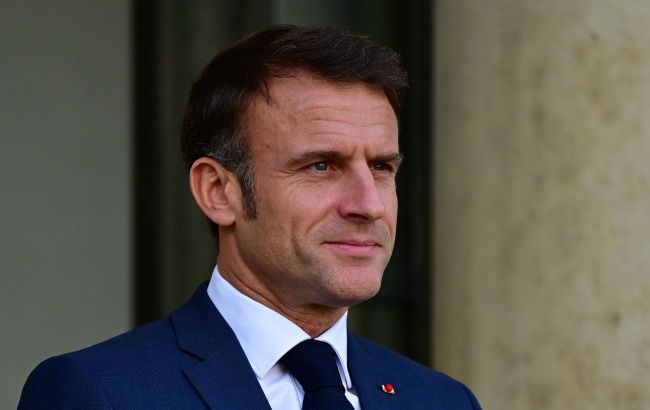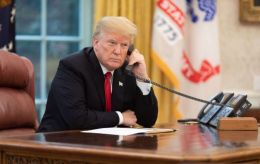France and Saudi Arabia call for Lebanese presidential election
 Photo: Emmanuel Macron, President of France (Getty Images)
Photo: Emmanuel Macron, President of France (Getty Images)
French President Emmanuel Macron and Saudi Arabia’s Crown Prince Mohammed bin Salman have called for the holding of presidential elections in Lebanon. This initiative came amid a ceasefire agreement between Israel and the Lebanese group Hezbollah, reports Élysée Palace.
The leaders signed a strategic partnership agreement to deepen bilateral ties between the countries and de-escalating the conflict in the Middle East, including in Lebanon.
Macron's office reported that during a meeting with Prince Mohammed, the de facto ruler of the oil-rich Gulf kingdom, they "agreed to make every effort to contribute to de-escalation in the region."
These efforts include assisting in consolidating the fragile ceasefire between Lebanon, where Hezbollah militants operate, and Israel. The ceasefire was declared on November 26.
"Together, they called for the holding of presidential elections in Lebanon with the aim of bringing the Lebanese people together and carrying out the reforms necessary for the stability and security of the country," the Élysée Palace statement said.
Additionally, Macron's office emphasized that the leaders' priority is "to establish a ceasefire without further delay in Gaza, to free all hostages, to protect civilian populations through the delivery of humanitarian aid and to contribute to the search for a political solution based on the two-state solution."
Notably, Macron’s official visit to Saudi Arabia marked his first trip to the country since President Jacques Chirac's visit in 2006.
Note: Currently, the acting president of the Lebanese Republic is Najib Mikati. He has held the position "temporarily" since October 30, 2022, after serving three terms as prime minister.
This followed the completion of Michel Aoun’s six-year presidential term.
Additionally, Mikati, who was previously involved in business, is considered a wealthy individual. According to Forbes, he was named the richest person in Lebanon in 2021, with a net worth of $2.5 billion. Mikati has also faced multiple accusations of corruption and illicit income.
It is worth noting that Mikati’s candidacy was supported in 2011 by the opposition led by the Islamist group Hezbollah during the vote for members of the country's government.

